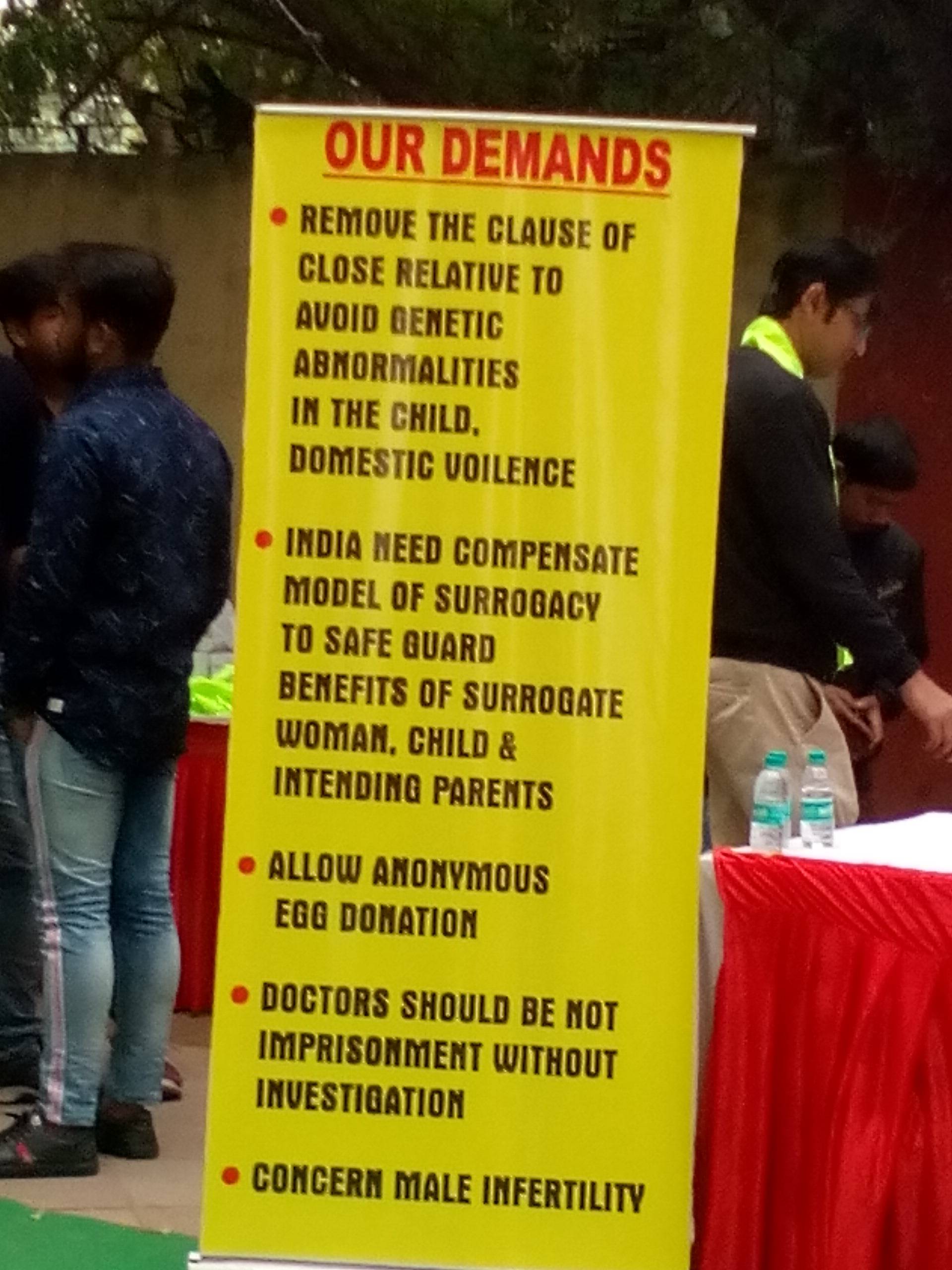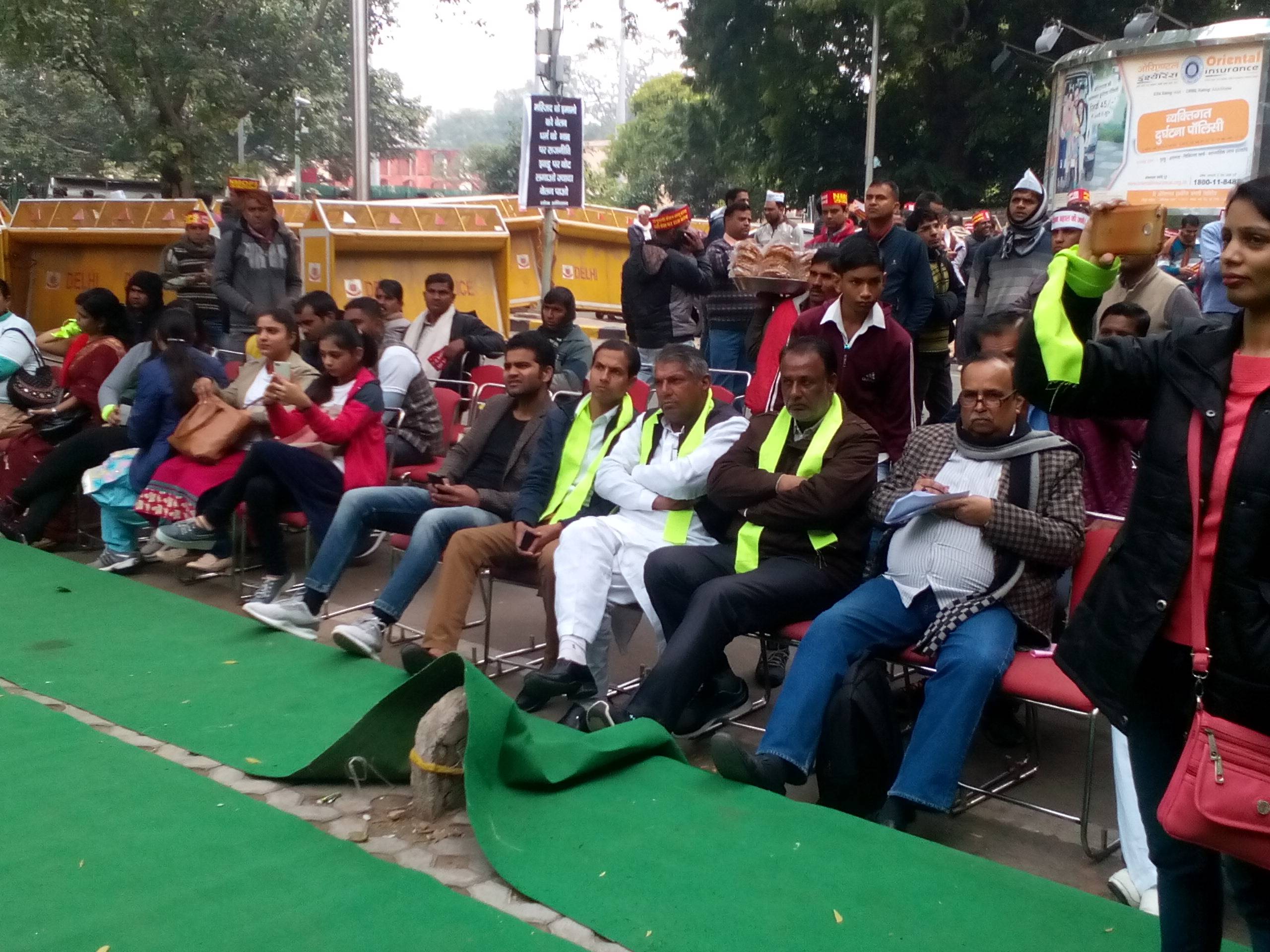Listener of Small Voices | Posted on |
Review Surrogacy Bill 2016
0
4686 Views
Government Playing Ignorant Nanny!
“Our family was exploring surrogacy for one of our family members a couple of years ago, and I had a chance to learn about the issue,” says Kiran Chawla Kapoor, a social activist, “I was struck by the changes the Surrogacy Bill 2016 was proposing and decided to work on this issue full time.”
 (Kiran Chawla Kapoor with actors on stage)
(Kiran Chawla Kapoor with actors on stage)
Surrogacy is an arrangement by which a woman agrees to give birth to a child for another person/s, who ultimately becomes the legal parent/s to the child. The term ‘gestational’ surrogacy is used to define the process which involves the surrogate or host to get pregnant through artificial means or in vitro fertilisation (IVF) with the embryo created by sperms and/or eggs of the intended parent/s or of unknown donors.
Ever since the procedure was successfully implemented in the 1980s, it has led to complex moral and legal issues, with many governments banning it outright (like in China) or allowing both gainful and altruistic surrogacy (like in Russia).
Gainful implies the surrogate mother earning something from the arrangement, while altruistic means the surrogate mother receiving only medical care and insurance.
In 2005 the ICMR (Indian Council for Medical Research) had drafted Guidelines to regulate Assisted Reproductive Technology (ART) procedures, which had included clauses to ensure health and insurance costs of the surrogate were covered; shielded privacy of all parties involved; and protected surrogacy from becoming a commercial activity, among others.
It had also underlined the need for one of the intended parents to be a donor, as well as allowed for single parents to opt for surrogacy. That’s why we see how popular surrogacy is in Bollywood: it is not only star couples like Aamir Khan & Kiran Rao, Shah Rukh & Gauri Khan, but even solo shots, like Karan Johar, siblings Tusshar & Ekta Kapoor, who have opted for parenthood through surrogacy.
However, in 2015, a notification, under the BJP government, prohibited surrogacy for foreign nationals, and the Surrogacy (Regulation) Bill was introduced in the Lok Sabha on November 21, 2016. It introduced some more controversial clauses, like single parents being barred from becoming surrogate parents; as well as only “close relatives” of the married couple becoming surrogates, without defining what “close” meant.
 (Display Board)
(Display Board)
“These clauses make no sense without proper data and reasoning,” says Ms Kapoor, who has approached the ICMR for data and written to the Parliamentary Petition Committee.
“The ICMR has no cases registered of exploitation,” she adds, which is what the government says is the reason to ban foreigners from surrogacy in India.
“The ART (Assisted Reproductive Technology) industry is now a 25,000 crore rupee pot of gold,” stated ‘Need for Legislation to Regulate ART Clinics as well as Rights & Obligations of Parties to a Surrogacy’ government report in 2009.
A pertinent question arises that if the government and hospitals are earning from medical tourism in India then why can a poor woman not enjoy a well deserved 9-month holiday, and earn some money through becoming a surrogate?
“And it is in the interest of the doctor and clinic that we choose healthy surrogates and look after them, so with so much poverty and unskilled population, why can we not allow poor women this avenue for making money?” says a doctor in Delhi.
A lawyer, also supporting Ms Kapoor’s campaign, speaks about the “close” relative clause being totally mystifying.
 (Participants)
(Participants)
There a recorded risk to the foetus’ health is closely related blood relatives, she says, but even if the close relative is an in-law and she is ‘requested’ to carry the baby for a family member, “can it not amount to undue influence or even exploitation, given the patriarchal attitudes in our society? Without careful study this clause can encourage domestic violence with a new face, like in dowry – girls can be put under pressure to be a surrogate for the sake of the family. Also, it can give rise to frivolous litigation. We cannot ignore these issues,” she says.
Additionally, Ms Kapoor is concerned about the pejorative use of terms like ‘baby factories’ for IVF clinics or the procedure termed ‘rent-a-womb’ and ‘third party assistance’.
“Ask couples who were desperate for their own child but couldn’t have them, but are so grateful for surrogacy; it is insulting to them,” she says.
“We feel strongly that all parties should benefit and be protected through the law. Has the Bill explored all these issues? We don’t think so, and we will continue to fight for a review of this Bill,” she asserts.
